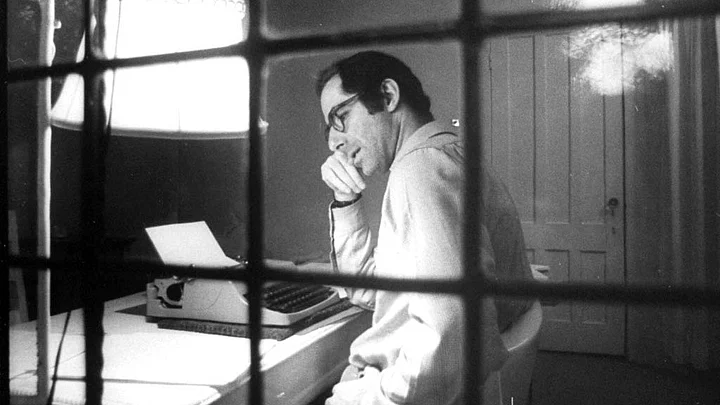Author Philip Roth, who was both hailed and derided for laying bare the neuroses and obsessions that haunted the modern Jewish-American experience, died on Tuesday at the age of 85, his agent said.
Roth died in New York City at 10:30 pm local time of congestive heart failure, his literary agent Andrew Wylie said.
Roth wrote more than 30 books, including the 1991 memoir "Patrimony," which examined his complex relationship with his father and won the National Book Critics Circle Award.
In his later years, Roth turned to the existential and sexual crises of middle age, never abandoning his commitment to exploring shame, embarrassment and other guilty secrets of the self, although usually with a heavy dose of humour.
After more than 50 years as a writer, Roth decided that 2010’s “Nemesis,” the story of a polio epidemic in the Newark, New Jersey, neighborhood where he grew up, would be his last novel.
He then went back and reread all his works "to see whether I'd wasted my time," he said in a 2014 interview published in the New York Times Book Review.
For his conclusion, he quoted Joe Lewis, the heavyweight boxing champion of the 1930s and '40s: "I did the best I could with what I had."
In 2017, he published "Why Write?," a collection of essays and non-fiction works written between 1960 and 2013.
Roth's best-known work was the 1969 novel "Portnoy's Complaint," a first-person narrative about Alexander Portnoy, a young middle-class Jewish New Yorker. The book featured several notorious masturbation scenes and a narrator who declared he wanted to "put the id back in yid."
Roth's first published book was the 1959 novella and short-story collection "Goodbye, Columbus," which won the National Book Award.
Several of his novels, including “Zuckerman Unbound,” “The Ghost Writer” and “The Anatomy Lesson”, feature Nathan Zuckerman, a character who came to be seen as Roth’s fictional alter ego.
Roth liked to play with the distinctions between fact and fiction, often writing about neurotic novelists and even naming some characters "Philip." Yet he was frequently annoyed and amused by the readers' desire to project the real Roth onto his characters.
Although his novels often explored the Jewish experience in America, Roth, who said he was an atheist, rejected being labelled a Jewish-American writer.
It’s not a question that interests me. I know exactly what it means to be Jewish and it’s really not interesting, I’m an American.Philip Roth to The Guardian in 2005
Some critics said Roth's novels exposed him as a self-hating Jew who played on negative stereotypes or generally cast Jews in a bad light. He would recall the hostile reception at a symposium at New York's Yeshiva University in 1962 as the "most bruising public exchange of my life."
